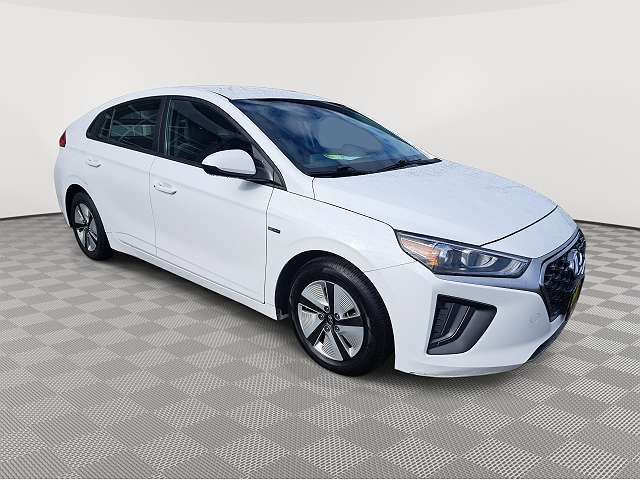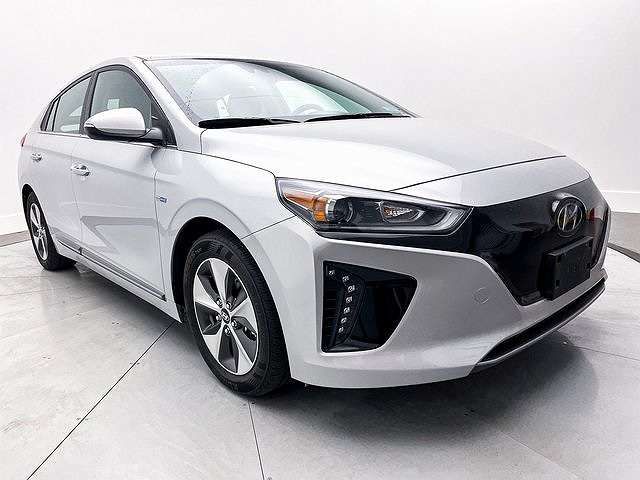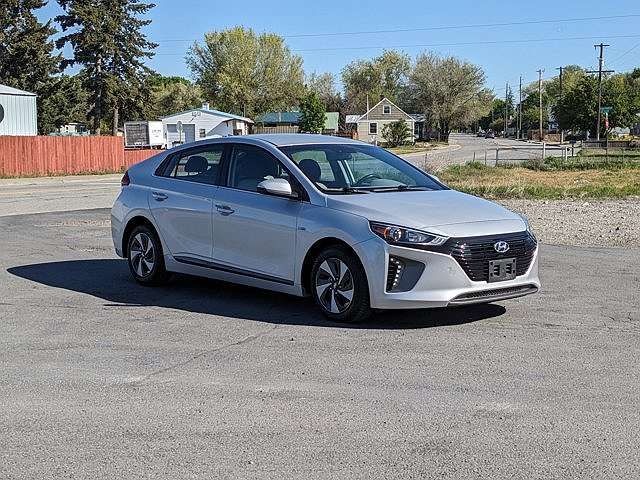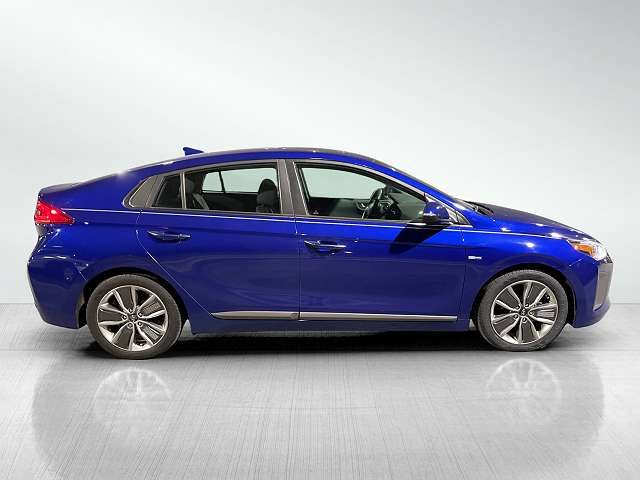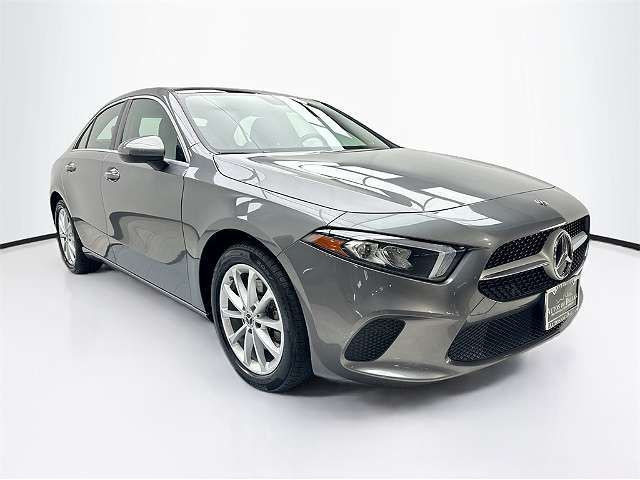2019 HYUNDAI IONIQVIN: KMHC75LD7KU161800

Historical Records
Vehicle declared a total loss by an insurance company
Collision damage reported
Outer tie rod(s) replaced
Alignment performed
 Window Sticker
Window Sticker
- Manufacturer's Suggested Retail Price (MSRP)
- Engine and Transmission Specifications
- Equipment, Packages, and Extra Features
- Fuel Economy Rating
- Other Information

Sale Record
| Year | 2019 |
| ODO | 1210 mi |
| Condition | Hidden text |
| Seller | Hidden text |
| Location | Anaheim, CA, 92806 |
| Date | appeared 2 years ago |
| Sale Website Type | classifieds |
| Notes | |
| 7416 | |
| Body Style | Hatchback |
| Color | White |
| Color (Interior) | Black |
| Transmission | Automatic |
| Engine | 1.6 L |
| Cylinders | 4 Cyl |
| Drive | FWD |
| Fuel Type | Hybrid |
- 16 Inch Wheels
- Hidden text
- Cloth Seats
- Hidden text
- Heated Seats
- Hidden text
- Keyless Entry
- Hidden text
- Spoiler
- 4-Wheel Disc Brakes
- 1462
- 6 Speakers
- Hidden text
- Adjustable Steering Wheel
- Hidden text
- Android Auto
- Hidden text
- Anti-Theft System
- Hidden text
- Auto Climate Control
- Hidden text
- Beverage Holder
- Hidden text
- Body Side Moldings
- Hidden text
- Cargo Net
- Hidden text
- Cloth Upholstery
- Hidden text
- Delay-Off Headlights
- Hidden text
- Dual-Zone Climate Control
- Hidden text
- Front Airbags (Driver)
- Hidden text
- Front Anti-Roll Bar
- Hidden text
- Front Center Armrest
- Hidden text
- Front Side Airbags (Driver)
- Hidden text
- Illuminated Entry
- Hidden text
- Leather Shift Knob Trim
- Hidden text
- Overhead Airbag
- Hidden text
- Panic Button
- Hidden text
- Power Mirrors
- Hidden text
- Power Windows
- Hidden text
- Rear Center Armrest
- Hidden text
- Rear-View Camera
- Hidden text
- Speed-Sensing Steering
- Hidden text
- Stability Control
- Hidden text
- Super Ultra Low Emissions Vehicle
- Hidden text
- Thermometer
- Hidden text
- Traction Control
- Hidden text
- Vanity Mirror/Light
| Year | 2019 |
| ODO | 320 mi |
| Seller | Hidden text (Hidden text) |
| MSRP | $4151 |
| Location | Anaheim, CA, 92806 |
| Date | appeared 5 years ago latest price $4590 sale post disappeared 2020-04-16 |
| Sale Website Type | classifieds |
| Notes | |
| 8891 | |
| Body Style | Hatchback |
| Color | Ceramic White |
| Color (Interior) | Charcoal Black |
| Transmission | 6-Speed EcoShift Dual Clutch |
| Engine | 1.6L 4-Cylinder Electric |
| Drive | FWD |
| Fuel Type | Electric |
- Alloy Wheels
- Hidden text
- Brake Assist
- Hidden text
- Driver Vanity Mirror
- Hidden text
- Front Dual Zone A/C
- Hidden text
- Keyless Entry
- Hidden text
- Audio controls on steering wheel
- Hidden text
- Cargo Net
- Hidden text
- Electronic stability control
- Hidden text
- Heated Front Bucket Seats
- Hidden text
- Leather steering wheel trim
- Hidden text
- Power Windows
- Hidden text
- Security System
- Hidden text
- Android Auto
- Hidden text
- Brake Assist
- Hidden text
- Dual Climate Control
- Hidden text
- AM/FM radio: SiriusXM
- Hidden text
- Bluetooth
- Hidden text
- Delay-Off Headlights
- Hidden text
- Front Center Armrest
- Hidden text
- Antilock Brakes
- Hidden text
- Bumpers: Body-Color
- Hidden text
- Dual Front Impact Airbags
- Hidden text
- Fully Automatic Headlights
- Hidden text
- Knee Airbag
- Hidden text
- Low Tire Pressure Warning
- Hidden text
- Power Door Mirrors
- Hidden text
- Speed control
- Hidden text
- Traction Control
- Hidden text
- Traction Control
- Hidden text
- Heated Door Mirrors
- Hidden text
- HD Radio
- Hidden text
- Passenger Vanity Mirror
- Hidden text
- Rear Window Defroster
- Hidden text
- Leather shift knob
- Hidden text
- Occupant Sensing Airbag
- Hidden text
- Overhead Airbag
- Hidden text
- Power Door Locks
- Hidden text
- Premium Cloth Seating Surfaces
- Hidden text
- Remote Keyless Entry
- Hidden text
- Spoiler
- Hidden text
- Tilt steering wheel
- Hidden text
- Variably Intermittent Wipers
Model Analytics & Market Report
Depreciation
| Year | Average Mileage | Average Price | % Left | % Lost | ||
|---|---|---|---|---|---|---|
| 2019 MSRP | 0 mi | $27,050 | — | — | 100% | 0% |
| 2021 | 34,227 mi | $21,498 | +$0 | +0% | 79.48% | 20.52% |
| 2022 | 45,636 mi | $19,950 | +$1,548 | +7.2% | 73.75% | 26.25% |
| 2023 | 57,045 mi | $18,123 | +$1,827 | +9.16% | 67% | 33% |
| → Visit 2019 HYUNDAI IONIQ depreciation page to see full data. | ||||||
Price vs Mileage
| Mileage | Average Price | Sample Size |
|---|---|---|
| 5,000 mi | $23,599 | 65 sales |
| 10,000 mi | $23,595 | 131 sales |
| 15,000 mi | $22,810 | 242 sales |
| 20,000 mi | $21,959 | 339 sales |
| 25,000 mi | $21,998 | 416 sales |
| 30,000 mi | $20,999 | 448 sales |
| → Visit 2019 HYUNDAI IONIQ depreciation page to see full data. | ||
VIN Decoder — 36 records
A TPMS is an electronic system designed to monitor the air pressure inside the pneumatic tires on various types of vehicles. TPMS can be divided into two different types - direct and indirect. Direct TPMS employ pressure sensors on each wheel, either internal or external. The sensors physically measure the tire pressure in each tire and report it to the vehicle's instrument cluster or a corresponding monitor. Indirect TPMS does not use physical pressure sensors but measure air pressures by monitoring individual wheel rotational speeds and other signals available outside of the tire itself.
Engine displacement (in cubic centimeters) is the volume swept by all the pistons inside the cylinders of a reciprocating engine in a single movement from top dead center to bottom dead center.
Engine displacement (in cubic inches) is the volume swept by all the pistons inside the cylinders of a reciprocating engine in a single movement from top dead center to bottom dead center.
Engine displacement (in liters) is the volume swept by all the pistons inside the cylinders of a reciprocating engine in a single movement from top dead center to bottom dead center.
Electrification level defines to what level the vehicle is powered by electric system. The common electric system configurations are mild hybrid, strong hybrid, plug-in hybrid, battery electric, and fuel cell vehicles.
(1) Mild hybrid is the system such as 12-volt start-stop or 48-volt belt integrator starter generator (BISG) system that uses an electric motor to add assisting power to the internal combustion engine. The system has features such as stop-start, power assist, and mild level of generative braking features.
(2) Strong hybrid systems, in vehicles such as the Toyota Prius, mainly consist of motors, conventional gasoline engine, and battery, but the source of electrical charge for the battery power is provided by the conventional engine and/or regenerative braking.
(3) Plug-in hybrid systems, in vehicles such as the Toyota Rav4 Prime, mainly consist of motors, conventional gasoline engine and battery. Plug-in hybrid vehicles are like strong hybrids, but they have a larger battery pack and can be charged with an external source of electricity by electric vehicle supply equipment (EVSE).
(4) Battery electric vehicles (BEV), such as the Tesla Model S or Nissan Leaf, have only a battery and electrical motor components and use electricity as the only power source.
(5) Fuel cell electric vehicles (FCEV) use full electric drive platforms but consume electricity generated by onboard fuel cells and hydrogen fuel.
Engine brake is the horsepower (hp) at the engine output shaft. Engine Brake (hp) From is the lower value of the range.
This is a numerical field to store the number of cylinders in an engine. Common values for passenger cars are 4 or 6.
Fuel type defines the fuel used to power the vehicle. For vehicles that have two power sources, such as plug-in hybrid vehicle, both primary fuel type and secondary fuel type will be provided.
Body Class presents the body type based on 49 CFR 565.12(b): "Body type means the general configuration or shape of a vehicle distinguished by such characteristics as the number of doors or windows, cargo-carrying features and the roofline (e.g., sedan, fastback, hatchback)." Definitions are not provided for individual body types in the regulation.
Gross vehicle weight rating (GVWR) is the maximum operating weight of a vehicle including the vehicle's chassis, body, engine, engine fluids, fuel, accessories, driver, passengers and cargo, but excluding that of the trailers. Per 49 CFR 565.15, Class 1 is further broken down to Class A-D; Class 2 is further broken down to Class E-H. This field captures the lower bound of GVWR range for the vehicle.
Gross vehicle weight rating (GVWR) is the maximum operating weight of a vehicle including the vehicle's chassis, body, engine, engine fluids, fuel, accessories, driver, passengers and cargo, but excluding that of the trailers. Per 49 CFR 565.15, Class 1 is further broken down to Class A-D; Class 2 is further broken down to Class E-H. This field captures the higher bound of GVWR range for the vehicle.
Per 49 CFR 565, Model means a name that a manufacturer applies to a family of vehicles of the same type, make, line, series and body type.
If the model year (MY) is supplied when the VIN is decoded, such as from a crash report or a vehicle registration record, the MY value will be the supplied MY, even if the MY decoded from the VIN differs from the supplied MY. If the MY is not supplied when the VIN is decoded, the MY value will be decoded from the 10th character in the VIN.
This data element captures the city of the manufacturing plant where the manufacturer affixes the VIN.
This data element captures the country of the manufacturing plant where the manufacturer affixes the VIN.
This field captures the location of curtain air bags. Curtain air bags are side air bags that protect the head.
This field captures the location of frontal air bags. Frontal air bags are generally designed to deploy in "moderate to severe" frontal or near-frontal crashes.


